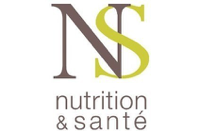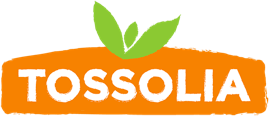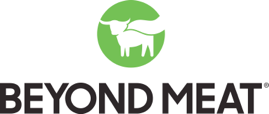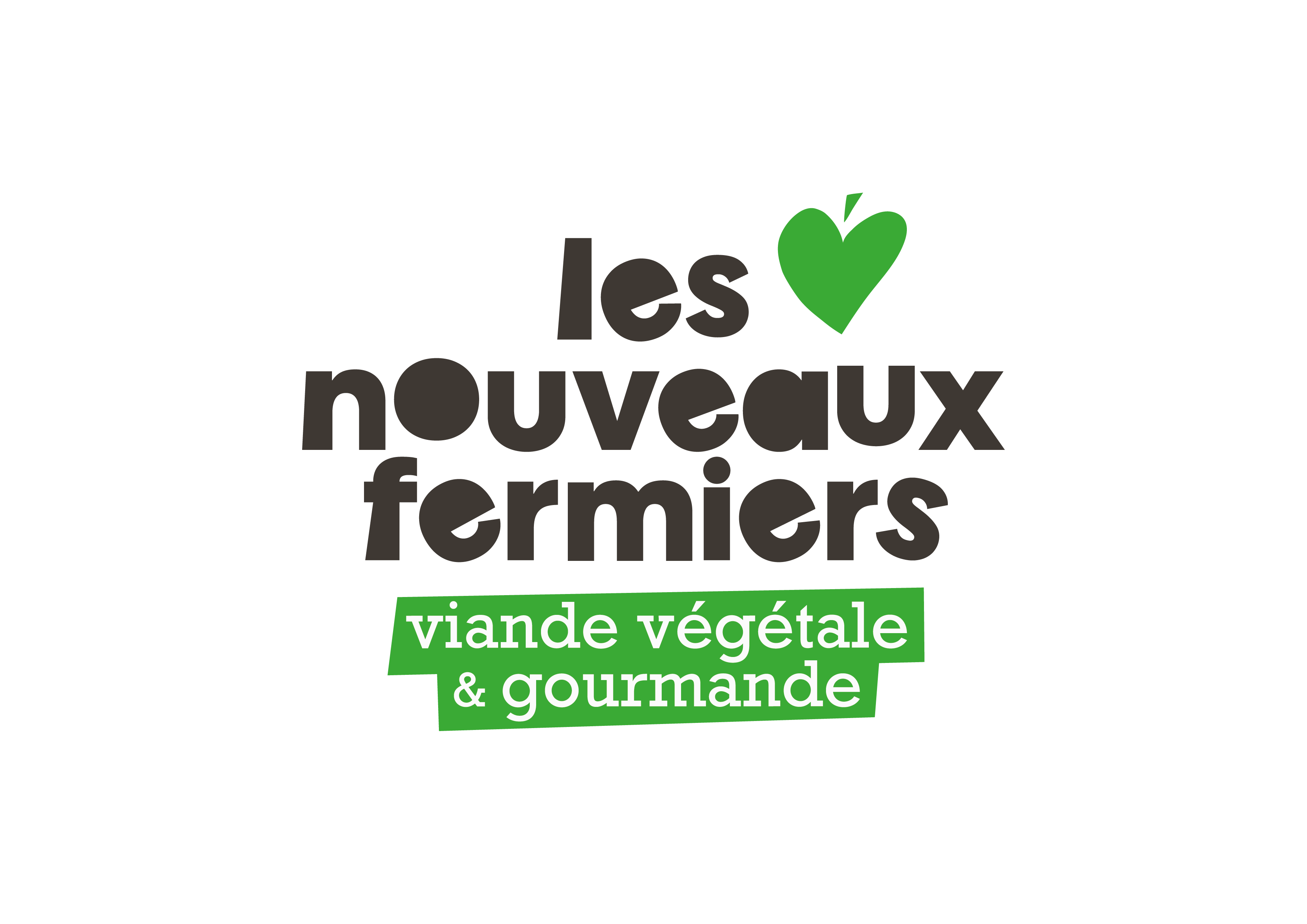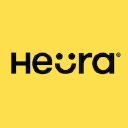Synthèse
The global market for meat substitutes has experienced significant growth, with forecasts predicting a cumulative annual growth rate of 7% , elevating the market value from €4.6 billion to €6.5 billion. Countries like Germany and the United States lead in vegan product launches, with France showing a strong potential due to its high number of flexitarians.
The French national market for vegetable meat has also seen steady growth, with the processing and preservation market reaching a value of 4.1 billion euros. Traditional vegetarian brands like Sojasun and Cereal are contending with newly entering industrial players and private labels such as Herta, which has quickly captured a substantial market share with offerings like the 100% vegetarian Knacki range.
The penetration of plant-based products in supermarkets and restaurants is increasing, driven by consumer demands for health benefits, ethical considerations regarding animal welfare, and environmental concerns. Advances in meat substitutes have led to products that increasingly resemble the taste and texture of animal meat, with Impossible Foods and Beyond Meat distinguishing themselves in the "3rd generation" category of meat alternatives.
However, competition is intensifying among distribution channels and players within those channels to source the best vegetarian meat products as the market's potential escalates.
A Comprehensive Insight into the Rising Shift Towards Meat Alternatives
Over recent years, the country has witnessed a palpable shift towards meat alternatives, accentuated by changing dietary preferences and a growing consciousness around health, environment, and ethical considerations. Notably, there has been a steady climb in the number of flexitarians – individuals who are predominantly vegetarian but occasionally consume meat – which now ranges between 30% and 35%. Vegetarians consist of around 5% of the population, while the vegan community remains relatively small, at less than 1%.
The market for meat substitutes, particularly driven by environmental concerns and ethical reasons surrounding animal welfare, is on an incline. The prevailing sentiment echoes a desire to mitigate the negative externalities posed by traditional animal farming, which is underscored by figures indicating a dip in per capita meat consumption. In this regard, it is estimated that consumption has waned by nearly 1% over a year, with specific segments like fresh and frozen meat witnessing declines between 1.5% and 7%.
Consumer demand also appears to be more discerning, with an increasing number of individuals – reported to be nearly half the consumer base – prepared to integrate hybrid meats or products solely relying on plant proteins into their diets. This burgeoning interest is reflected in the gradual augmentation of products containing vegetable proteins, which have witnessed an approximate eighteenfold increase over the last three decades. This uptrend is further evident within retail settings, where metrics such as the average annual budget dedicated to plant-based products, and their penetration rates in supermarkets and hypermarkets, have been rising.
The frequency of purchase of these products has also seen an incremental rise. Private labels in the retail sector have captured a substantial portion of the market share, sitting at around 24%, by extending their offerings to encompass vegetarian meat products. While traditional meat consumption is not anticipated to fade completely, it is clear that the palette of the consumer is expanding, displaying an inclination towards alternatives that offer a semblance of meat both in taste and texture.
With a landscape brimming with potential and estimated to balloon to an astonishing $140 billion worldwide by 2029, the market for meat alternatives is set for profound growth as it continues to cater to and stimulate the evolving tastes of a health-conscious, environmentally aware, and ethically driven populace.
Prominent Contenders in the Plant-Based Meat Arena: Innovators and Traditional Giants
The burgeoning plant-based meat industry has seen a wave of innovation that's been matched with enthusiasm from both niche startups and established food industry behemoths. As the market continues to grow, a diverse array of players compete for their share of the meatless pie.
Here’s a closer look at some of the main players shaping this dynamic sector.
- Impossible Foods - Leading the Plant-Based Revolution with the Impossible Whopper. At the forefront of plant-based innovation is California-based Impossible Foods. This startup has captured widespread attention with its eponymous "Impossible Burger," a plant-based burger that's become a sensation for its meat-like taste and texture. The brand catapulted into the mainstream when fast-food giant Burger King added the "Impossible Whopper" to its menu, showcasing the potential for plant-based options in fast food.
- Beyond Meat - Pioneering plant proteins in fast casual dining equally influential is Beyond Meat, another Californian innovator. Known for its strikingly meat-like products, Beyond Meat has challenged perceptions of plant-based meats with its flagship "Beyond Burger." The company has leveraged partnerships with restaurant chains, including KFC and the Parisian chain Buffalo Grill, to bring plant-based options to a wider audience.
- Herta - A Nestlé Brand taking a big bite of the vegetarian market. Another key player is Herta, a brand under the Nestlé umbrella. With a strong presence in the European market, Herta has made a name for itself by expanding its "Knacki" range to include a 100% vegetarian recipe. They've thoroughly embraced the flexitarian trend, targeting consumers seeking meat alternatives that don’t compromise on taste or texture.
- Triballat-Noyal (Sojasun) - Soy innovators and long-time vegetarian advocates Triballat-Noyal, through its brand Sojasun, has been an early and influential promoter of soy-based products. Beginning with soy milk, they have expanded their range to include tofu and a variety of soy-based meat substitutes. Sojasun has continued to innovate, offering 2nd and 3rd generation plant-based meats to accommodate the growing market.
- Céréale - Early pioneers transitioning into new markets, Céréale has held a pioneering status in the plant-based food market, starting with vegetarian staples and moving into more advanced meat substitutes that replicate traditional meat forms.
à la compréhension de ce marché
Détail du contenu
 Informations
Informations
- Nombre de pages : 30 pages
- Format : Version digitale et PDF
- Dernière mise à jour : 08/11/2020
 Sommaire et extraits
Sommaire et extraits
1 Market overview
1.1 Definition and scope of the study
Meat substitutes or imitation meat products represent a food category of products whose taste or aesthetic characteristics imitate those of certain meats for human consumption, and which generally have intended to replace the use of animal meat for consumption.
As a general rule, meat substitutes are made from non-meat products and sometimes also exclude products of animal origin, such as dairy products. The majority of these substitutes are based on soybeans, wheat, cereals, peas, various photosynthetic plants, bacterial or fungal cultures which are denatured by chemical and mechanical treatment to obtain a product in the form of meat, whereby this is then flavoured.
The world market for meat substitutes is growing rapidly with forecasts of a cumulative annual growth rate of 7% per year between 2018 and 2023. Europe is the dominant market for vegetable meat, ahead of North America and Asia-Pacific. In France, sales in the vegetable meat industry are also rising rapidly, with a 11% growth between 2018 and 2019 .
With rising flexitarian and vegan trends inovolving the reduction of meat consumption, vegetable meats are more than ever in ascendancy. This phenomenon is accentuated by a promise of a reduction of the carbon and environmental footprint compared to the negative externalities which traditional animal production produce. Finally, the increase in health problems such as obesity or diabetes, due in particular to the over-consumption of meat products, also encourages consumers to turn to vegetable meats.
The sector is strongly marked by novelty with investments in Research & Development to constantly find new products that use less water, pollute less and taste better. The current trend is to diversify the raw materials used in the manufacture of meat products, which until now have been mainly soy and wheat-based.
1.2 A growing global market, mainly in Western countries
Size of the world market for meat alternatives World, ****-*****, in billions of euros Source: ****
The world market for vegetable meat is expected to grow at a sustained rate of *% per year until ****, increasing the value of the market from €*.* billion to €*.* billion.
A study conducted by the British bank Barclays ...
1.3 A national market that has been growing steadily for several years now
The vegetable meat market is included in the category "Other processing and preserving of fruit and vegetables" (***) of the INSEE nomenclature.
Size of the vegetable processing and preservation market France, ****-****, in billions of euros Source: ****
The processing and preservation market grew by *.*% between **** and **** to reach a value of *.* billion ...
2 Demand Analysis
2.1 Demand for traditional meats structurally declining
Meat consumption per capita in France contracted by *% in ****. The main segments contributing to this decline were fresh and frozen meat (***).
Meat consumption per capita France, ****-****, in g/day Source: ****
The graph of meat consumption per capita in carcass equivalent shows a gradual decline since ****. While this decline in consumption ...
2.2 French people increasingly fond of meat alternatives
French consumers have been attracted to vegetable meat for a long time. As early as ****, a study reveals that **% of consumers wanted to reduce their meat consumption. According to the same study, **% of consumers said they are ready to eat hybrid meats (***) and **% of them could turn to products based exclusively ...
2.3 Consumer perception of vegetable proteins
The products containing the most proteins according to the French people France, ****, in % Source: ****
The consumer barometer conducted by the GEPV reveals that **% of French people, i.e. *.*% more than in ****, think that vegetable proteins (***) are beneficial for health. At the same time, **% are convinced that they are good for the ...
2.4 Motivations of vegetarian consumers
Ethical, environmental (***) and health concerns are the main reasons given for choosing a flexitarian or vegetarian diet.
Animal welfare
According to Opinion Way **% of those who say they abstain from meat and fish, choose animal welfare as the first criterion for doing so. In total, **% of French vegetarians consider this criterion ...
3 Market structure
3.1 Value chain of the vegetable meat market
The interview given by the French startup "Les Nouveaux Fermiers" to L'Usine Nouvelle is rich in lessons on the organisation of the value chain of the vegetable meat industry. Raw materials are first purchased from a network of French or European producers. The finished product is then produced by an industrial ...
3.2 A market shared between specialist brands, industrial players and private labels
Traditional vegetable and meat substitute brands :
The current leaders in the vegetable and meat substitute sector are those who were able to offer similar subsitutes at *st generation (***). These include Triballat-Noyal which owns the Sojasun brand. Another player, the Breton company, started to design soy-based products in ****, starting with milk, and ...
3.3 The battle for the distribution of vegetarian meat
The vegetarian meat market has a very strong potential and could reach $*** billion worldwide by ****, according to estimates by the British bank Barclays. There is therefore competition both between distribution channels and, above all, between players in the same distribution channel to obtain supplies from the best vegetarian meat producers.
Barclays ...
3.4 French restaurants are changing in response to new vegetarian and vegan demand
It is estimated that between **** and **** the number of vegetarian restaurants in Paris has increased *.* times to a total of ***. This trend does not only affect table-top restaurants but also fast food restaurants, with for example McDonald's launching its vegetarian burger, the "Grand Veggie" in ****, or university restaurants with the development ...
4 Analysis of the offer
4.1 Overview of the different types of vegetable meats
There are several generations of meat substitutes. Each generation has brought a form of technological innovation compared to the previous one, with the common thread always being the desire to resemble animal meat more and more.
*st generation
These are products that do not resemble animal products. They are the ...
4.2 The advantages of vegetable meat
Vegetable meat has several environmental, health and ethical advantages which are at the root of its nascent success with French consumers.
Environmental benefit
Meat consumption has a major environmental impact. According to United Nations figures, the sector's greenhouse gas emissions amount to **.*% of the world total (***), far ahead of aviation or ...
4.3 Obstacles to the growth of the vegetable meat market
In spite of all its qualities, vegetable meat is not a panacea for the moment. Indeed, there are still many criticisms and doubts about its future development.
An ultra-processed product harmful to health
Among the potential risks, analysts at the British bank Barclays cite "the fact that alternatives to meat are ...
5 Regulation
5.1 Food regulations
Meat substitutes are subject to a set of standards governing the production and transport of food for human consumption
Thus the following standards apply to the production and transport of these foodstuffs:
Regulation (***) No ***/**** of the European Parliament and of the Council of ** April **** on the hygiene of foodstuffs. Order of ...
5.2 Regulation on the appointment of meat substitutes
On Wednesday ** May ****, the National Assembly definitively adopted the law on the transparency of consumer information on agricultural and food products. The text includes a number of provisions adopted in the framework of the Egalim law but which had been retooled by the Constitutional Council in October ****.
It is now prohibited ...
 Liste des graphiques
Liste des graphiques
- Taille du marché mondial des alternatives à la viande
- Pays avec la plus grande proportion de lancements de produits végans
- Taille du marché de la transformation et conservation de légumes
- Évolution du nombre de produits contenant des protéines végétales
- Consommation de viande par habitant
Toutes nos études sont disponible en ligne et en PDF
Nous vous proposons de consulter un exemple de notre travail d'étude sur un autre marché !
Dernières actualités
Entreprises citées dans cette étude
Cette étude contient un panorama complet des entreprises du marché avec les derniers chiffres et actualités de chaque entreprise :
 Choisir cette étude c'est :
Choisir cette étude c'est :
Accéder à plus de 35 heures de travail
Nos études sont le résultat de plus de 35 heures de recherches et d'analyses. Utiliser nos études vous permet de consacrer plus de temps et de valeur ajoutée à vos projets.
Profiter de 6 années d'expérience et de plus de 1500 études sectorielles déjà produites
Notre expertise nous permet de produire des études complètes dans tous les secteurs, y compris des marchés de niche ou naissants.
Notre savoir-faire et notre méthodologie nous permet de produire des études avec un rapport qualité-prix unique
Accéder à plusieurs milliers d'articles et données payantes
Businesscoot a accès à l'ensemble de la presse économique payante ainsi qu'à des bases de données exclusives pour réaliser ses études de marché (+ 30 000 articles et sources privées).
Afin d'enrichir nos études, nos analystes utilisent également des indicateurs web (semrush, trends…) pour identifier les tendances sur un marché et les stratégies des entreprises. (Consulter nos sources payantes)
Un accompagnement garanti après votre achat
Une équipe dédiée au service après-vente, pour vous garantir un niveau de satisfaction élevé. (+33) 9 70 46 55 00
Un format digital pensé pour nos utilisateurs
Vous accédez à un PDF mais aussi à une version digitale pensée pour nos clients. Cette version vous permet d’accéder aux sources, aux données au format Excel et aux graphiques. Le contenu de l'étude peut ainsi être facilement récupéré et adapté pour vos supports.
 Nos offres :
Nos offres :
the meat substitute market | France
- Quels sont les chiffres sur la taille et la croissance du marché ?
- Quels leviers tirent la croissance du marché et leur évolution ?
- Quel est le positionnement des entreprises sur la chaine de valeur ?
- Comment se différencient les entreprises du marché ?
- Données issues de plusieurs dizaines de bases de données
Pack 5 études (-15%) France
- 5 études au prix de 75,6€HT par étude à choisir parmi nos 800 titres sur le catalogue France pendant 12 mois
- Conservez -15% sur les études supplémentaires achetées
- Choisissez le remboursement des crédits non consommés au terme des 12 mois (durée du pack)
Consultez les conditions du pack et de remboursement des crédits non consommés.
- 04/02/2024 - Mise à jour des données financières de l'entreprise Nutrition & Santé Groupe
- 02/10/2023 - Mise à jour des données financières de l'entreprise Nutrition & Santé Groupe
- 02/05/2023 - Mise à jour des données financières de l'entreprise Nutrition & Santé Groupe
- 26/02/2023 - Mise à jour des données financières de l'entreprise LDC (Groupe)
- 21/02/2023 - Mise à jour des données financières de l'entreprise Olga Groupe (Triballat Noyal)
- 13/01/2023 - Ajout des informations de l'entreprise Umiami
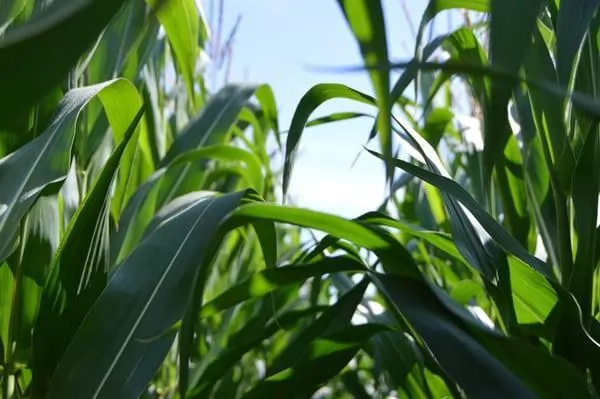




 Protéines végétales : Umiami a inauguré son usine en Alsace - 30/03/2024
Protéines végétales : Umiami a inauguré son usine en Alsace - 30/03/2024
 Fleury Michon, le roi du jambon qui parie sur le végétal avec des tranches de légumes - 28/03/2024
Fleury Michon, le roi du jambon qui parie sur le végétal avec des tranches de légumes - 28/03/2024
 Olga: Les desserts végétaux de Sojasun à la conquête du gigantesque marché chinois - 13/12/2023
Olga: Les desserts végétaux de Sojasun à la conquête du gigantesque marché chinois - 13/12/2023
 Les volailles de Loué à la conquête du marché polonais - 23/11/2023
Les volailles de Loué à la conquête du marché polonais - 23/11/2023
